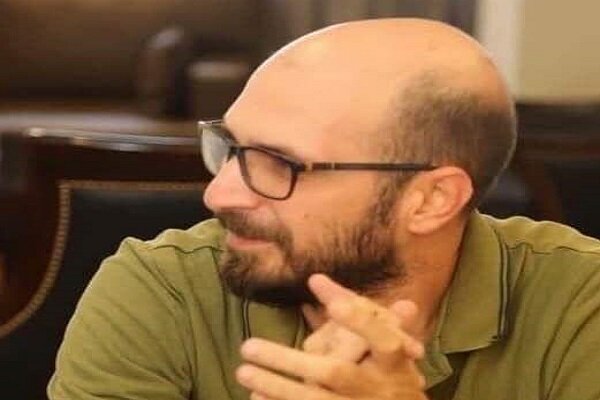August 22, 2020 – 0:2

From the first day of the Hariri assassination, the March 14 alliance sought to exploit the incident, through a political accusation against Syria at the beginning and Hezbollah lately.
TEHRAN – After 15 years of work, on August 19, the Special Tribunal for Lebanon handed down its verdict on the Hariri assassination charges.
The judgment was initially scheduled to be delivered in May but was delayed twice—first due to the coronavirus pandemic and second as a gesture of solidarity for the victims of the massive explosion in Beirut on August 5, which devastated the city.
In this regard, Maher al-Khatib, a Lebanese writer, tells the Tehran Times that the Special Tribunal for Lebanon has politicized Rafic Harir’s assassination case. “The court failed to provide evidence for its claims,” he argues. “It failed to provide evidence for its claims.”
Following is the full text of the interview:
Q: What is your comment on the verdict issued by the Special Tribunal for Lebanon?
A: It is not possible to understand the verdict of the International Tribunal for Lebanon, without returning to the full path that it went through over the past years and before that the process that the international investigation commissions have gone through.
The two paths showed the fact that the court was highly politicized, and the verdict of the hearing session confirmed this.
For the most part, it presented just a political analysis of the process of the Lebanese events before 2005.
The court reached certain conclusions underlining that Hezbollah and the Syrian state had an interest in the assassination of Hariri.
However, the court failed to provide evidence for its claims.
Consequently, what the court reached, in the end, maybe aimed at defending its objectivity, while it presented what was previously known but in a softer way.
Q: Given Sayyed Hassan Nasrallah’s statements, what will be the response of Hezbollah to the court’s ruling?
A: A few years ago, Hezbollah announced that it was dealing with the International Tribunal on the basis that it did not exist, after it was turned into a political tool in the hands of the United States of America and Israel, in addition to other international and regional powers.
Therefore, it will not have any reaction to the verdict issued by the court; however, its silence is an affirmation of its previous position on it, which means that it does not recognize the court and its verdict.
Q: How did the March 14 alliance has tried to use the International Tribunal to undermine Hezbollah’s status in Lebanon during the past years?
A: From the first day of the Hariri assassination, the March 14 alliance sought to exploit the incident, through a political accusation against Syria at the beginning and Hezbollah lately.
Accordingly, many considered that the court had become a tool consumed by this alliance to the maximum extent, the aim of which was to blockade Damascus and later to surround Hezbollah inside Lebanon.
Despite the content of the verdict issued by the international court, there are those within the March 14 alliance which sought to go far in interpreting it, by emphasizing that it deals with Hezbollah as a political organization, which is identical to the positions issued by some regional and international parties.
Q: In light of the international tribunal’s statement, do you expect an internationalization of the Beirut blast?
After the verdict issued by the International Tribunal, many political forces and features affiliated with the March 14 alliance considered that it has proved that the court was not politicized, on the basis that they did not incriminate all the individuals mentioned in the prosecution.
So, they tried to use it as a justification to support their call for the internationalization of the investigation on the Beirut blast.
On the other hand, the March 8 alliance saw that the verdict issued by the court, regardless of being politicized or not, indicates that the Lebanese judicial organs can reach better results and faster.
They insist on refusal to go to the internationalization of cases in Lebanon.
Based on Lebanon’s current political balances today, which are different from the conditions of Hariri ‘s assassination in 2005, I rule out the option of internationalizing investigations on the Beirut port explosion.
However, Lebanon is ready to use international expertise, including French and American.
Filed under: Hezbollah, Lebanon | Tagged: Beirutshima, Hariri assassination, March 14 Movement, Tribunal for Lebanon |
 RSS Feed
RSS Feed















 August 23rd, 2020
August 23rd, 2020  Awake Goy
Awake Goy  Posted in
Posted in  Tags:
Tags: 













